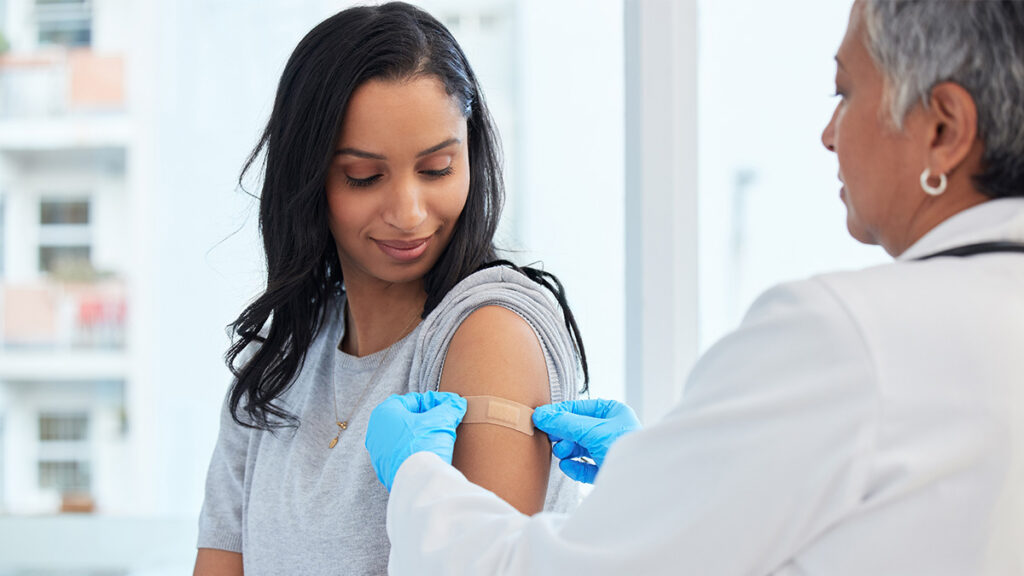Hepatitis A is a contagious liver infection caused by the hepatitis A virus (HAV). It is commonly transmitted through contaminated food, water, or close contact with an infected individual. Vaccination is a highly effective preventive measure against this disease.

Importance of Hepatitis A Vaccination
The hepatitis A vaccine is crucial for preventing infection and its potential complications. The vaccine stimulates the body’s immune system to produce antibodies that fight the virus, offering long-term protection.
Key Benefits of Hepatitis A Vaccine
- Provides nearly 100% immunity after two doses
- Safe and effective for individuals of all ages
- Reduces the risk of hepatitis A outbreaks
- Protects against severe liver damage linked to hepatitis A
Who Should Get the Hepatitis A Vaccine?
Recommended Groups for Vaccination
- Children: The Centers for Disease Control and Prevention (CDC) recommends routine vaccination for all children at 12-23 months of age.
- Travelers: Those visiting regions with high rates of hepatitis A, including parts of Africa, Asia, and Central or South America.
- Food Industry Workers: Due to potential exposure to contaminated food or surfaces.
- Individuals with Chronic Liver Disease: As they are at greater risk of severe illness.
- Men Who Have Sex with Men (MSM): A higher incidence of hepatitis A has been reported within this group.
- Illicit Drug Users: Due to increased exposure risk.
Hepatitis A Vaccine Schedule
Standard Dosing Schedule
- First Dose: Administered at age 12-23 months or as early as 6 months for travelers.
- Second Dose (Booster): Given 6-18 months after the initial dose to ensure long-term immunity.
Accelerated Schedule for Travelers
- Travelers who are short on time may receive the first dose immediately, with a follow-up dose upon return.
Hepatitis A Vaccine Types
There are two primary types of hepatitis A vaccines:
- Monovalent Vaccine: Protects solely against hepatitis A (e.g., Havrix, Vaqta).
- Combination Vaccine: Offers protection against both hepatitis A and hepatitis B (e.g., Twinrix).
Possible Side Effects of the Hepatitis A Vaccine
The hepatitis A vaccine is generally safe, with minimal side effects. Possible reactions include:
- Pain or redness at the injection site
- Mild fever
- Fatigue
- Headache
Severe allergic reactions are rare. Individuals with severe allergies to vaccine components should consult a healthcare provider before vaccination.
Efficacy and Protection Duration
Studies show that the hepatitis A vaccine provides:
- 95% protection after the first dose
- 100% protection after completing the second dose
Protection typically lasts for at least 20 years, and booster shots are rarely necessary.
Hepatitis A Prevention Strategies Beyond Vaccination
While vaccination is the best preventive measure, additional strategies can reduce your risk:
- Practice good hygiene, particularly frequent handwashing.
- Consume only safe, properly cooked food and purified water when traveling.
- Avoid close contact with infected individuals.
FAQs on Hepatitis A Vaccination
Is the Hepatitis A Vaccine Mandatory?
While not mandatory in most countries, vaccination is highly recommended for at-risk populations and travelers.
Can the Hepatitis A Vaccine Be Given with Other Vaccines?
Yes, the hepatitis A vaccine can be administered alongside other vaccines without impacting effectiveness.
What Should I Do If I Miss a Dose?
If you miss your second dose, you can receive it without restarting the series.
Are Booster Shots Necessary for Hepatitis A?
Booster shots are generally not required as the two-dose series provides long-term protection.
Hepatitis A vaccination is a vital step in protecting yourself and others from this contagious liver infection. By adhering to recommended guidelines, individuals can achieve long-term immunity and minimize their risk of exposure. If you are traveling to high-risk areas or belong to an at-risk group, consult your healthcare provider about vaccination today.